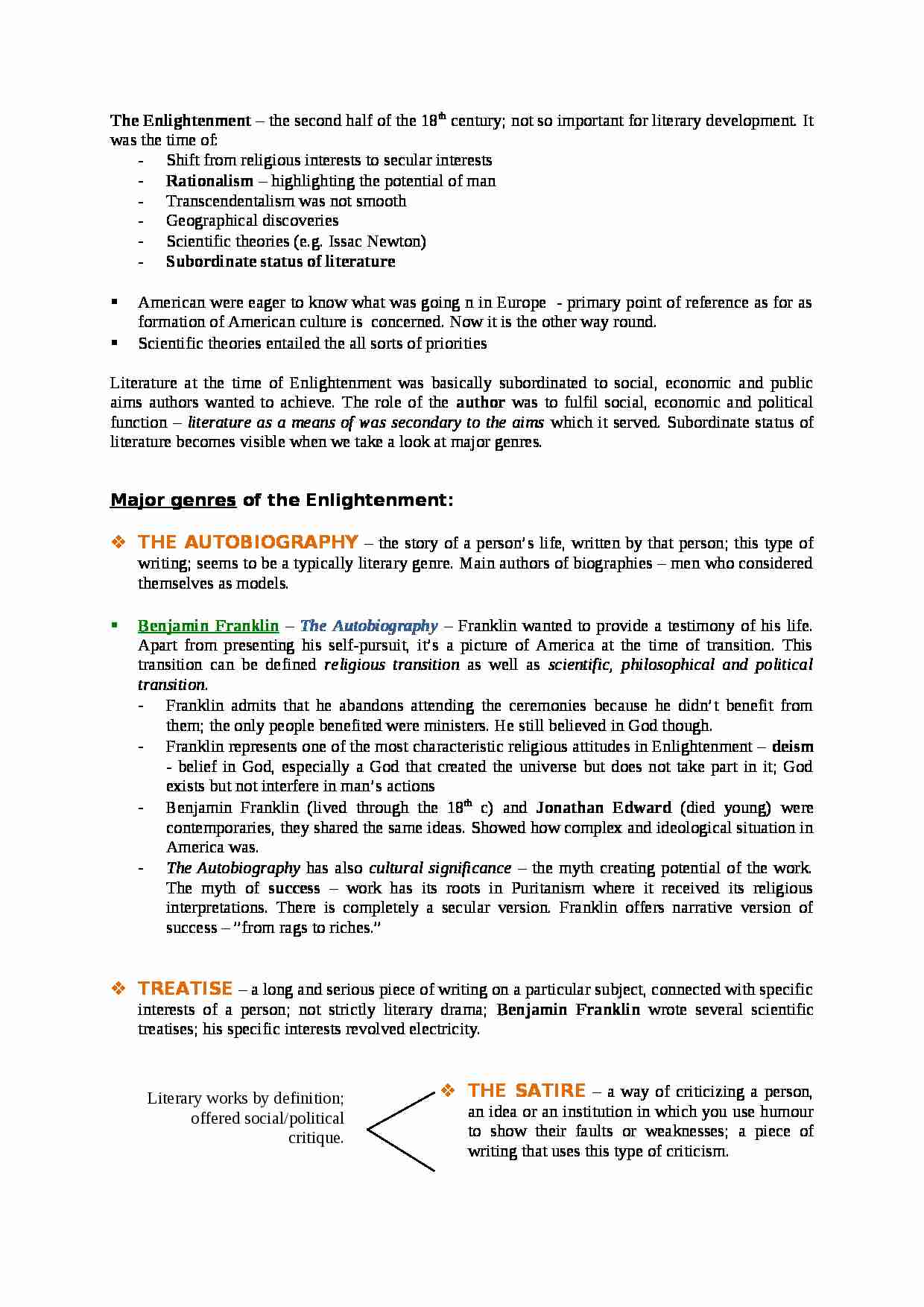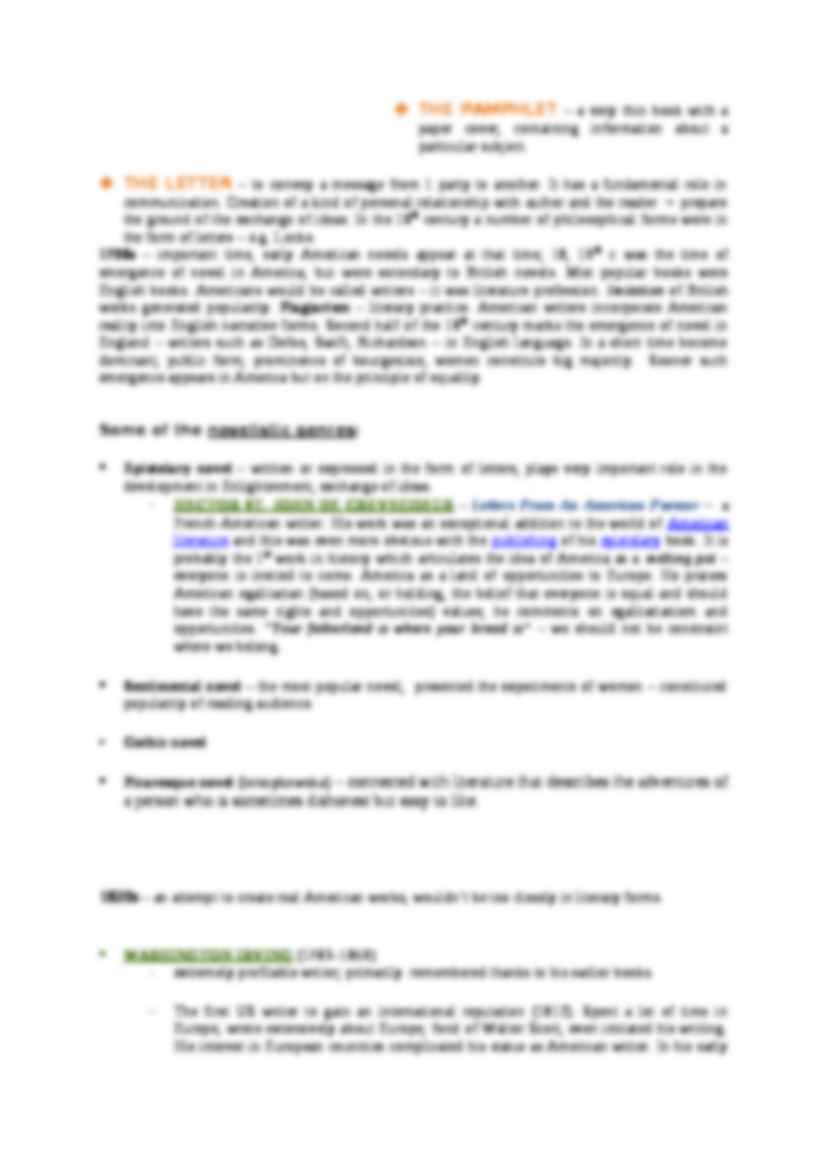To tylko jedna z 5 stron tej notatki. Zaloguj się aby zobaczyć ten dokument.
Zobacz
całą notatkę



The Enlightenment - the second half of the 18th century; not so important for literary development. It was the time of:
Shift from religious interests to secular interests
Rationalism - highlighting the potential of man
Transcendentalism was not smooth
Geographical discoveries
Scientific theories (e.g. Issac Newton) Subordinate status of literature
American were eager to know what was going n in Europe - primary point of reference as for as formation of American culture is concerned. Now it is the other way round. Scientific theories entailed the all sorts of priorities
Literature at the time of Enlightenment was basically subordinated to social, economic and public aims authors wanted to achieve. The role of the author was to fulfil social, economic and political function - literature as a means of was secondary to the aims which it served. Subordinate status of literature becomes visible when we take a look at major genres.
Major genres of the Enlightenment:
The autobiography - the story of a person's life, written by that person; this type of writing; seems to be a typically literary genre. Main authors of biographies - men who considered themselves as models.
Benjamin Franklin - The Autobiography - Franklin wanted to provide a testimony of his life. Apart from presenting his self-pursuit, it's a picture of America at the time of transition. This transition can be defined religious transition as well as scientific, philosophical and political transition.
Franklin admits that he abandons attending the ceremonies because he didn't benefit from them; the only people benefited were ministers. He still believed in God though.
Franklin represents one of the most characteristic religious attitudes in Enlightenment - deism - belief in God, especially a God that created the universe but does not take part in it; God exists but not interfere in man's actions
Benjamin Franklin (lived through the 18th c) and Jonathan Edward (died young) were contemporaries, they shared the same ideas. Showed how complex and ideological situation in America was.
The Autobiography has also cultural significance - the myth creating potential of the work. The myth of success - work has its roots in Puritanism where it received its religious interpretations. There is completely a secular version. Franklin offers narrative version of success - ”from rags to riches.”
Treatise - a long and serious piece of writing on a particular subject, connected with specific interests of a person; not strictly literary drama; Benjamin Franklin wrote several scientific treatises; his specific interests revolved electricity.
(…)
… with a paper cover, containing information about a particular subject.
The letter - to convey a message from 1 party to another. It has a fundamental role in communication. Creation of a kind of personal relationship with author and the reader → prepare the ground of the exchange of ideas. In the 18th century a number of philosophical forms were in the form of letters - e.g. Locke.
1790s - important…
… forms. Second half of the 18th century marks the emergence of novel in England - writers such as Defoe, Swift, Richardson - in English language. In a short time become dominant; public form; prominence of bourgeoisie, women constitute big majority. Sooner such emergence appears in America but on the principle of equality.
Some of the novelistic genres:
Epistolary novel - written or expressed in the…
… people and territories
honest, skilful, not prejudiced, greatest friend, Indian man
teaches often hoe to avoid predictions
committed to all affairs he gets included
ready to sacrifice himself
Chingachgook
noble savage
native American who stays in the company to white friends
becomes better person we can appreciate his values however strange they appear to be
Literary works by definition; offered social…
... zobacz całą notatkę






Komentarze użytkowników (0)